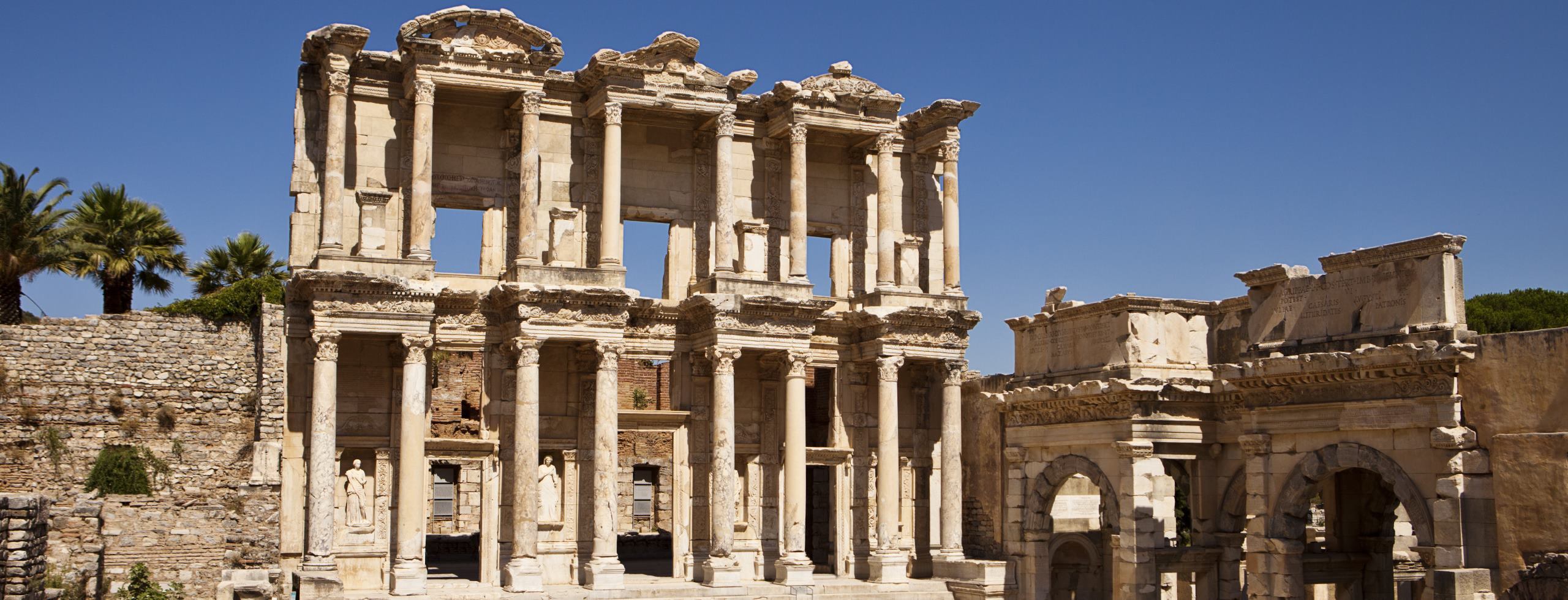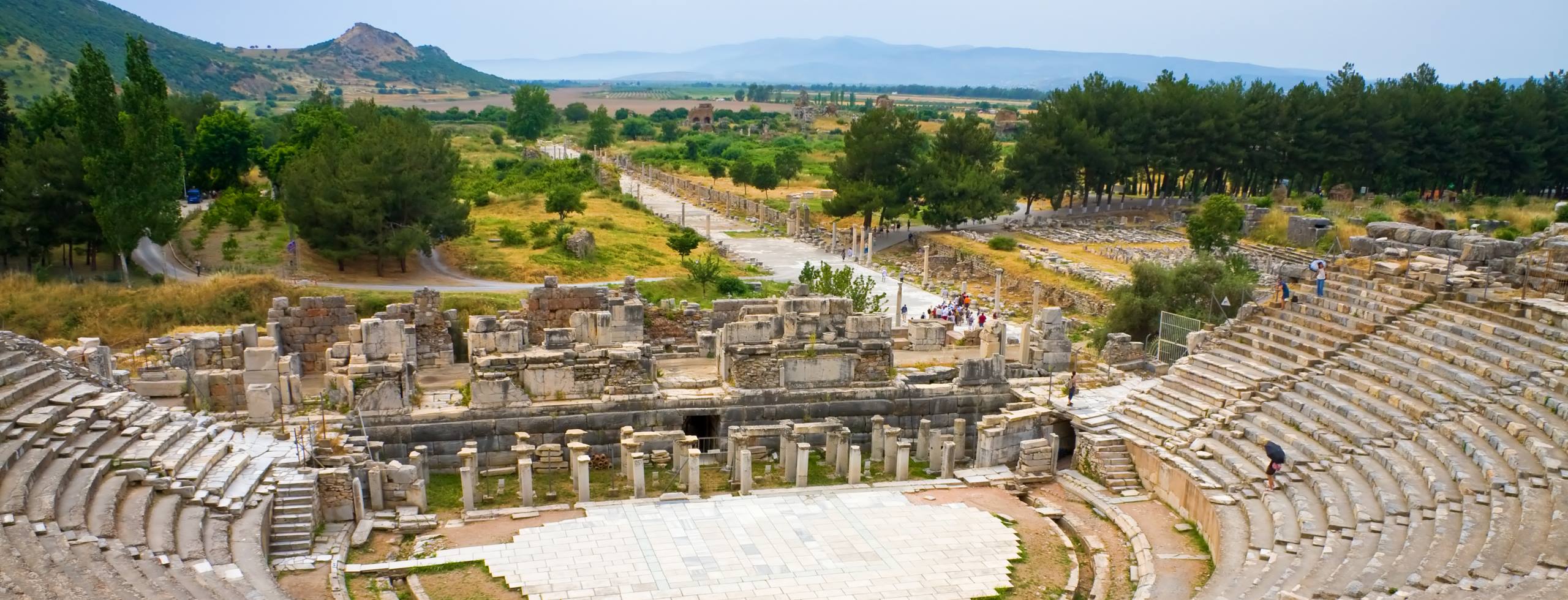- Historical landmarks
- Rich history
- Among best preserved ruins of ancient world
- Religious history
-
Destinations
All Destinations
We'll craft an unsurpassed vacation just for you.
All you'll have to do is land
Choose your destination
- Pick your Trip
-
 Build your True Trip
Build your True Trip
- How It Works
- Blog
Ephesus
Ephesus Vacation Packages by TrueTrips
Known for its incredible historical landmarks, such as the Temple of Artemis, the Library of Celsus, the magnificent theater, or the famous Terrace Houses, Ephesus has been a place of historical importance for religions and empires alike. The Basilica of St John and the House of the Virgin Mary give the area a distinct meaning to Christians all around the world while adding to the area's traditions. Located close to the coast in the Aegean Region, today Ephesus is an international and local travel destination of high regard.
Ephesus Highlights
Ephesus History
The area surrounding Ephesus has been inhabited since at least 6000 BC, and by 1300 BC the Mycenean Greeks had established settlements; yet it was the coming of Ionian Greeks in the 10th century BC that laid the foundations for the great city that emerged. In 546 BC the Persians conquered the area, along with other Greek cities on the coast, and absorbed the city into their Empire. By 130 BC, Rome had taken complete control of Ephesus, although it was fought over by Romans and the Asian Minor Kingdom of Pontus. Not until 27 BC, under the Emperor Augustus, did Ephesus enter an era of peace and prosperity that would see the construction of most of the buildings seen today. During the Christian era, Ephesus became a great center of commerce. It was the largest city in Asia Minor with some 450,000 inhabitants, and second in size to Rome. According to legend, Mary the mother of Jesus had retreated to Ephesus after her son’s crucifixion. Aside from brief conquering by Arabs and Turks, Ephesus remained under the Byzantine Empire, while in 1304 it was conquered again by the Turks to whom it has remained until today.



 View Map
View Map 

